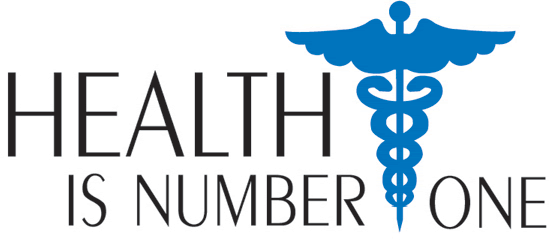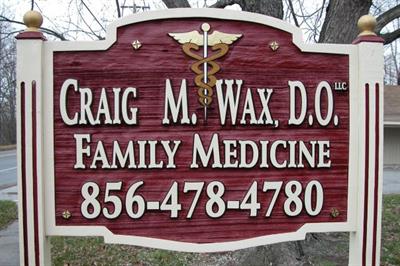Health Library ~ Family Medicine in Mullica Hill, NJAll Material copyright Craig M. Wax, DO unless otherwise denoted. TEEN PREGNANCY With over one million American teenage girls becoming pregnant every year, the United States holds the title for having the highest rate of teenage pregnancy in the industrialized world. To gain a clearer picture of this statistic, that breaks down to one out of five sexually active girls becoming pregnant. However, while those numbers are a bit overwhelming, pregnancy rates have been on the decline in the past few years. Helping Young Women Decide Young women also need to know that they have rights when choosing to engage in sexual activity. "Young women need to know they have the right to decide if they are ready for sex," says Margaret Nusbaum, D.O., an osteopathic family physician in North Carolina. "They have the right to say "no" or to declare limits on sexual activity. They need to know they should be able to come to a decision about sex without being pressured." Although many young women have chosen abstinence, the fact remains that many other young women have decided to become sexually active. Before experiencing their "first time," young women should know about their choices and the consequences of their actions. Young women have many choices when it comes to contraception, for example. Some of the contraceptive methods available are: * Norplant-A physician places six small capsules in your upper arm.These capsules release progestin, the hormone that prevents the release of your eggs and thickens cervical mucus to make it more difficult for sperm to fertilize your eggs. * Depo-Provera-A physician injects progestin in your arm or your buttocks every 12 weeks. * The Pill-This is prescribed by a physician, and it is the woman's responsibility to take one every day. The pill can be a combination of estrogen and progestin or progestin alone. * Diaphragm-A physician will fit you with a shallow latex cup that is inserted into your vagina. * Condom-This must be placed on the erect penis right before penetration. It can be made of latex, plastic or animal tissue. Keep in mind that animal tissue provides very poor protection against STDs. A limited number of brands of female condoms also exist. Consequences of Becoming Sexually Active One of the most important things to bear in mind when deciding to have sex is the possibility of becoming pregnant. "More than 50 percent of pregnancies are unplanned," she stresses. "If unplanned, a pregnancy can have a negative impact on a woman who may have wanted to focus on a career or school. But if she has a child, the baby becomes the priority." * Acquired Immunodeficiency Syndrome (AIDS)-Caused by the human immunodeficiency virus (HIV), this disease destroys the body's ability to fight off infection. * Chlamydia-The most common of all STDs, its symptoms can include abnormal genital discharge and a burning sensation with urination. * Genital Herpes-These infections are caused by the herpes simplex virus. An infected person may find painful blisters or open sores in the genital area. * Genital Warts-This STD is caused by a virus related to the one that results in common skin warts. Genital warts can lead to cervical cancer in some women. * Gonorrhea-The symptoms for this infection include abnormal genital discharge and painful or difficult urination. * Syphilis-Symptoms may involve painless sores on the genitals, mouth or fingers; enlarged lymph nodes in the areas with the sores; fever; fatigue; and loss of appetite. However, the symptoms of syphilis often go undetected because they can be mild and may disappear suddenly. If left untreated, the infection invades internal organs, bones and the brain. With the potential health risks and the ever-present possibility of becoming pregnant, young women need to seriously consider when is the right time to engage in sexual activity. It is a major decision to become sexually active, and young women need to have as much information as possible in order to make the best choices for themselves. The American Osteopathic Association (AOA) reminds you that November 12-18 is National Osteopathic Medicine Week. This year's target group is young women from the ages of 12 to 24. During this time, osteopathic physicians will work to raise awareness among young women regarding the many issues they face as they strive to maintain healthy lifestyles. In addition, D.O.s hope to educate them on how preventive care can help maintain good health throughout their lives.D.O.s are fully licensed physicians who have additional training that focuses on the body's structure and function as well as its ability to heal itself. For more information on osteopathic medicine or to locate a D.O. in your area, call the AOA at 1.800.621.1773, ext. 8252, or visit the AOA's Web site at www.aoa-net.org. Did You Know...? * The average age of first intercourse among Americans is age 16. * By the time they graduate, 66 percent of high school seniors have had sex. * Teens who have been raised by both parents from birth have lower chances of having sex than teens growing up in other family situations. * Three quarters of teen mothers are unmarried and * The younger a sexually active teenaged girl is, the more likely she is to have had unwanted or non-voluntary sex. Sources: Planned Parenthood and National Campaign to Prevent Teen Pregnancy You can contact the following organizations for additional information: American Social Health Association
The National Campaign to Prevent Teen Pregnancy
Planned Parenthood Federation of America
Rape, Abuse and Incest National Network
|
|





